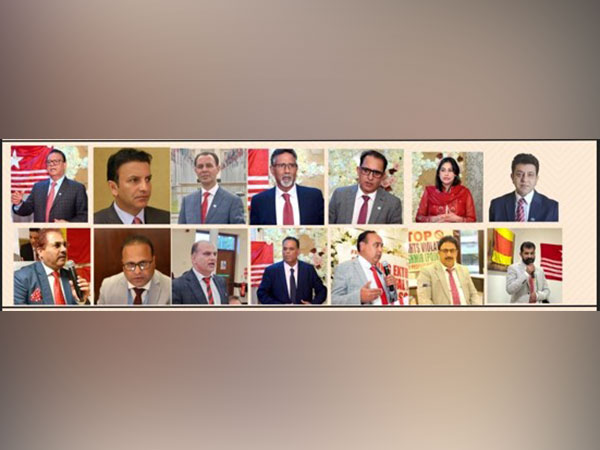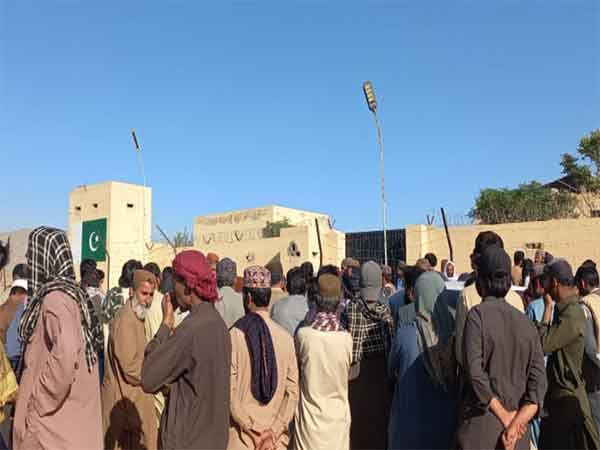Erdogan stifles further freedom of speech, slaps fines on Facebook, Twitter etc
Nov 09, 2020

By John Solomou
Nicosia [Cyprus], November 9 : Turkey on Wednesday imposed 1.1 million euro fines on digital media giants including Twitter, Facebook, Instagram, YouTube, Periscope and TikTok because they did not appoint official representatives in the country, as required by a new digital media law adopted this July.
In the past 17 years, Turkey's authoritarian President Tayyip Erdogan managed to consolidate his control over the traditional media and this year turned his attention to the social media platforms, with a view to silencing any critical utterance about his policies.
The draconian new social media law envisages a fine of 10 million TL (1.1 million euro) to social media firms with more than one million users, for failing to open an office staffed by at least one representative responsible for investigations and legal proceedings before the deadline set.
Furthermore, the law compels social networks to remove content deemed to be offensive by Turkish authorities within 48 hours. Firms that fail to comply with the new provisions within 30 days will face an extra fine of 3.3 million euro, within another 30 days a ban on taking advertisements will take effect, and what is worse, within 3 months their bandwidth will be slashed by 50 or 90 percent by Turkish internet providers, which effectively means that their access to the internet will be blocked.
Governing the AKP party and Erdogan argue that the new law, which came into effect on 1st October, was needed to protect citizens from cybercrime and slander. Human rights groups and opposition parties see the new law as President Erdogan's attempt to control the social media and silence his critics. According to Twitter, Turkey has submitted the highest number of requests to delete content and close accounts.
Apparently, Facebook has decided to clash with President Erdogan and refuses to establish a formal presence in Turkey, where it has about 51 million users. So far, Twitter and other large social media platforms have not given publicly an indication of their plans. Only the Russian social media platform VK conveyed the name of its representative to the Information Technologies and Communication Authority (BTK). The new regulations may result in large internet platforms quitting the Turkish market.
Analysts, point out, however, that this will certainly anger the country's large population of young people and may also harm Turkey's AKP ruling party, which relies on social media to spread its political messages to youths.
Emma Sinclair-Webb, an expert on Turkey at the Human Rights Watch organization, says that many people living in Turkey use social media to access information that is not available in the traditional media -- especially information that takes a critical view of the government. She says: "According to Germany's Foreign Office, about 90% of Turkey's media outlets are linked to the AKP (Erdogan's party) through personal or financial contacts. The remaining newspapers and broadcasters have reportedly been starved of financing through tactics that include threatening customers who take out ads. Independent media outlets that used to be openly critical have begun to exercise more self-censorship. We strongly urge social media companies not to comply with the new law."
It is a fact that about 90 percent of Turkish conventional media is now controlled by conglomerates close to the government. Regularly journalists are arrested on spurious terrorism charges. According to Amnesty International "Freedom in Turkey is under sustained and increasing attack. Since the failed coup attempt in 2016, academics, journalists and writers who criticize the government risk criminal investigation and prosecution, harassment and censorship."
Reporters without Borders (RSF) said that the sale in March 2018 of Turkey's largest media group, the Dogan Media Company, which included the daily Hurriyet and the CNN Turk, to pro-government Demiroren Holding was labelled the "death of media pluralism in Turkey."
It is noted that according to Freedom House's "2020 Freedom in the World Index", Turkey continues to be classified as "Not Free".
More than 120 journalists are still being held in Turkey's jails, a global record, and the situation of the media in the country has not improved since the lifting of a two-year state of emergency last year, the International Press Institute, a global press watchdog, said.
OzgurOgret, Turkey Representative for the Committee to Protect Journalists, points out that the Turkish government wants media "which totally parrot their agenda. The media are required in effect to report on the successes of the AKP governance, according to AKP itself. Of course that can hardly be the truth and the truth has been the enemy of authoritarian governments everywhere in history."
Law professor and digital rights activist YamanAkdeniz wrote on Twitter that "a new and dark period in Turkey is starting. The aim is to silence. It is the intention of the government to clean its past from critical content, including news coverage of corruption allegations as well as all sorts of irregularities. Even without the new bill, Turkey blocked access to more than 400,000 websites by the end of 2019."
Six years ago, when there were reports in the press and the social media that Erdogan was involved in a corruption scandal, the Turkish President had said: "We will not allow this nation to be devoured by YouTube, Facebook or whatever. We will take the necessary steps in the firmest way." He kept his promise.




















